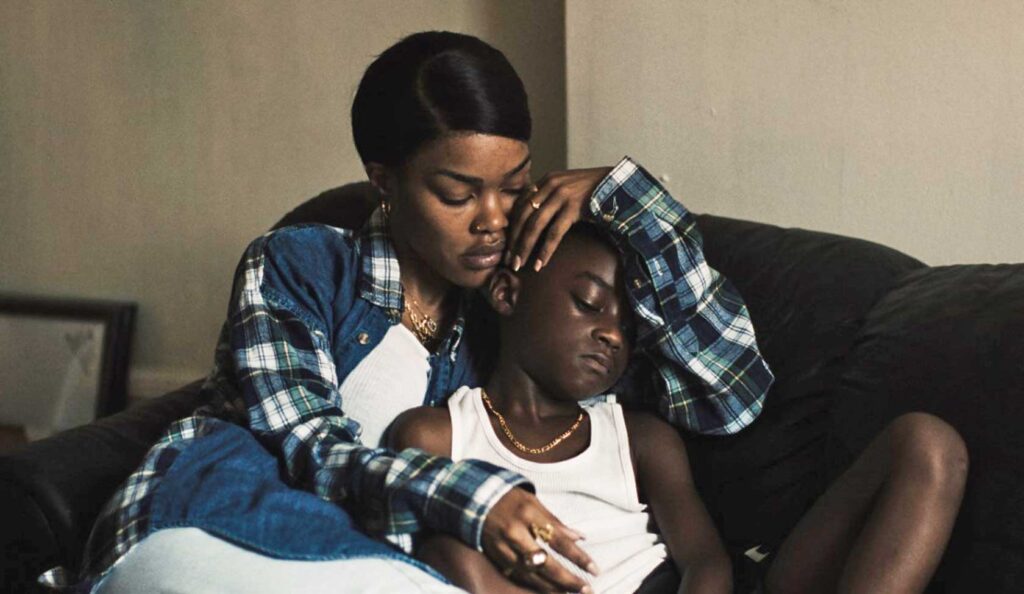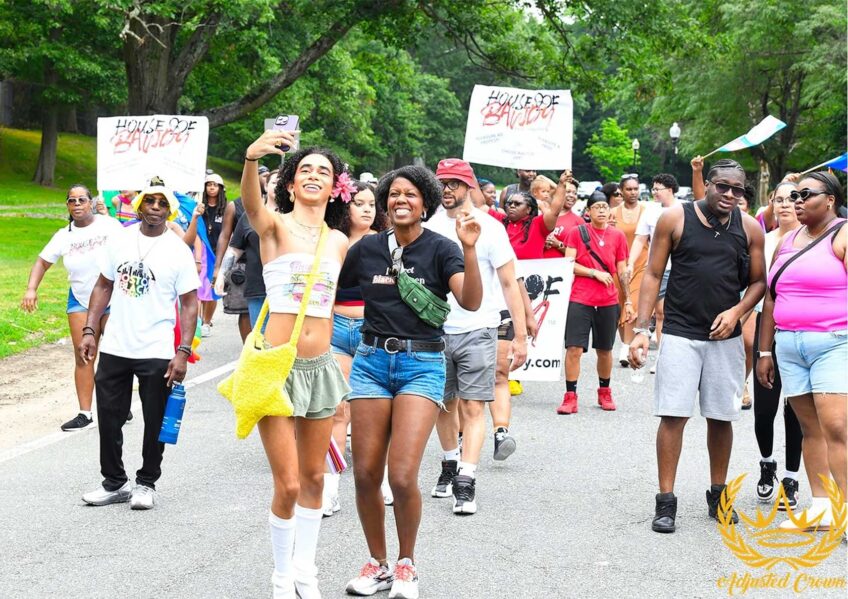‘A Thousand and One’ is a love letter to Black women
A.V. Rockwell explores human complexity in new feature film

A.V. Rockwell wrote and directed her debut feature film “A Thousand and One,” which won the U.S. Dramatic Grand Jury Prize at Sundance this year. The film opens nationwide March 31.
The movie stars Teyana Taylor as Inez, a well-meaning yet impulsive woman who is released from Rikers and kidnaps her son Terry from foster care. The story follows the pair in Harlem from 1994 to 2005 as they settle into family life while the city changes around them.
When Rockwell arrived at the Coolidge Corner Theatre office in Brookline last week to discuss her new film, she embodied a quiet confidence. Radiating calm and cool, she was dressed in all-black with a Josephine Baker T-shirt, pointy white boots and gold jewelry. Will Catlett, the actor who plays Lucky in the film, said at Sundance, “She’s like the flyest director I’ve seen.”

A.V. Rockwell, writer and director of “A Thousand and One.” PHOTO: MAYA IMAN
This film is personal, Rockwell said. One reason she made the film was to see more Black women on screen in all their human complexity. She was tired, she said, of seeing Black women reduced to washed up tropes like the strong superhero or someone’s second-choice love interest. “This is my love letter to Black women,” she said, “and my heartbreak letter to New York City.”
Born and raised in Jamaica, Queens, Rockwell witnessed the harmful effects of gentrification, an overloaded foster care system and the trauma from stop-and-frisk policies. Sadly, these all are national issues. The story is set in Harlem, but it could’ve happened almost anywhere.
“Harlem is an icon for Black identity and culture, period,” she said when discussing her decision to set the film in the historic neighborhood.
She also wanted to show the subtleties of gentrification and how it happens slowly over time. She recounted how devastating it was when the Lenox Lounge, a historic Harlem locale where Billie Holiday and John Coltrane performed, closed in 2012 because of a lease dispute. It was eventually demolished in 2017. It’s a Wells Fargo now.
As the neighborhood changes around Inez and Terry, they also cope with the ebbs and flows of family life. Inez introduces Terry to a father figure, Lucky. All three of these characters are given the grace and space to be multifaceted and flawed. Rockwell’s writing and handling of delicate family dynamics is nuanced and hopeful and heartbreaking all at once. Each person takes on the brave and almost impossible task of creating a family without knowing what that entails.
“I wanted to showcase the power of what happens when you actually stay committed to your family,” Rockwell said. “I really wanted to establish the beauty of that, because as a community there are so many things in place that are just working to constantly rip us apart.”
One of those things is arguably the foster care system. Rockwell’s first Instagram post earlier this year included a picture of a 1993 New York Times opinion piece addressed to then-Mayor-elect Rudy Giuliani. It detailed how the overwhelmed NYC foster care system could not support the 50,000 children in its care. Rockwell said she found the article when researching whether Terry’s kidnapping from foster care was plausible. The article suggested a resounding yes.
As for what’s next, Rockwell was mum on the subject. One thing she was clear about was taking a break from telling New York stories. “I’m dying to go elsewhere,” she said. “I just want to explore the human condition in general, and that, as a storyteller, is really exciting for me.”






